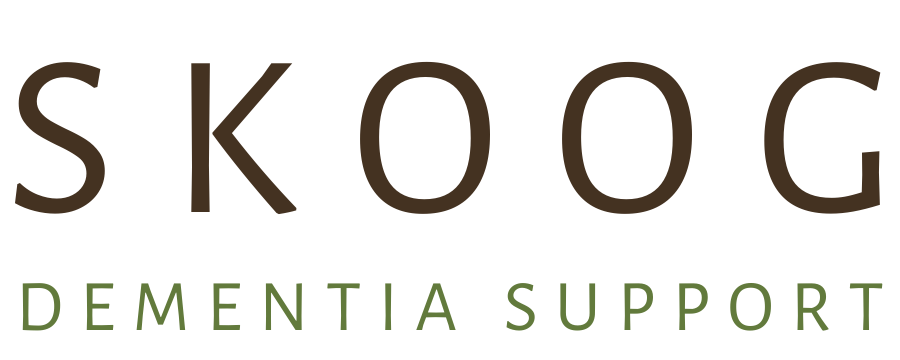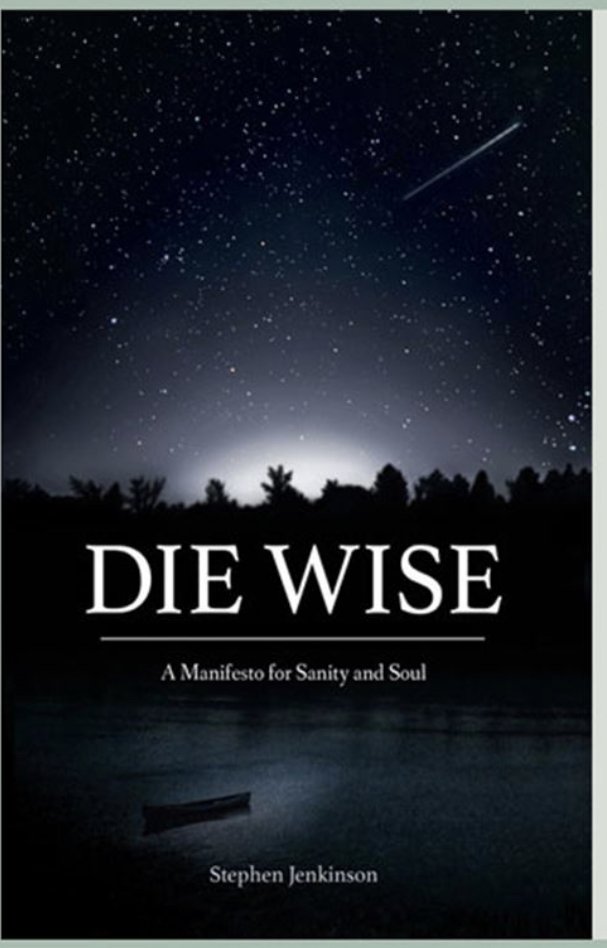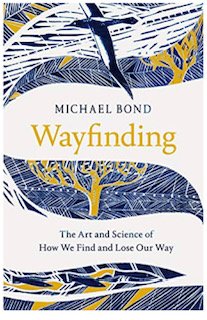
Resources
“Empathy is the art of stepping imaginatively into the shoes of another person, understanding their feelings and perspective and using that understanding to guide your actions.”
—Roman Krznaric—
People bloom when they hear words of encouragement and hope.
Words can influence our perspective, knowledge, feelings, and concepts. Words impact the way we think about our world and those we interact with.
Altering how we see and speak about dementia and cognitive changes starts with understanding the labels, definitions, and words we use. Individuals experiencing changes in thinking, memory, and attention skills are often stigmatized by the heavy and dark language of despair, suffering, and angst. But it doesn’t have to be that way. The more we understand our brains, the better we can support those who are experiencing challenges and create an environment to encourage them to bloom.
Understanding Thinking Skills
These are the key concepts of the DAWN Method that may help you reframe your understanding of dementia.
Dementia
Dementia is not a diagnosis but a group of symptoms impacting thinking and social symptoms enough to interrupt everyday functioning. Symptoms include forgetfulness, isolation, and changes in attention and thinking abilities.
There are multiple forms of dementia that result from a variety of diseases and injuries that primarily or secondarily
affect the brain.
It is important to seek medical support if there are changes to your thinking and social skills to rule out any conditions that may be causing them.
-
The negative social attitude is based on personally known and unknown biases attached to a characteristic of an individual that may be regarded as a mental, physical, or social deficiency. A stigma implies social disapproval and can lead unfairly to discrimination against and exclusion of the individual.
-
The tendency to be prejudiced against older adults, to negatively stereotype them, and to discriminate against them, especially in employment and health care.
-
We are embracing habilitative care when we accept individuals’ abilities and disabilities and modify the environment and our expectations to make it safer and more comfortable for them to be included and successful in theircommunities. Caregivers and societies who are habilitative in their approach focus on their companions’ individual understandings of reality rather than forcing the agreement of what may be seen as a common reality. The focus is onmeeting companions’ emotional needs and preserving dignity and autonomy.
-
Dementia care that is based on an individual’s desired and changing personal needs rather than dictated by schedules, protocols, or norms. The person-directed caregiver supports their companion’s abilities and provides targeted assistance in the areas where help is needed. This not only meets the person’s needs but also supports his or her interests.
-
Looking back and recalling the roles we’ve carried out, the hobbies we’ve had, and with whom we enjoyed spending time brings us a sense of familiarity with our surroundings. Our remembering selves shape our interpretation of what we are experiencing in the present by providing confirmation and explanations drawn from our past experiences.
-
Appreciating the present by experiencing what is occurring to us and around us. The experiential self is absorbing information from the many physical senses, even if we are not able to understand the stimuli we are receiving or explain what we are experiencing.
-
Rational thought is our conscious, reasoning self, and deductive thinking skill. We use it to analyze data, be methodical, make choices, see cause and effect, prioritize information and actions, and follow a process or series of steps. Rational thought is not instantaneous; it takes effort. Rational thought will also tell us whether our behavior is appropriate for the circumstance and includes our ability to learn by rote.
-
Intuitive thought operates automatically, instantaneously, and without effort. It is the source of our feelings, impressions, and gut reactions. We use our intuitive thought skills when we read intonation, facial expressions, and body language. Intuitive thought is our means of enjoying music and beauty. It includes our ability to learn by experience.
-
According to Ellen Langer, “Mindfulness is a flexible state of mind in which we are actively engaged in the present, noticing new things.” It comes from being able to use rational thought and attention.
-
When we are not actively engaged in what we are doing, we are acting unconsciously and following a series of steps or behaving without conscious decision.
-
The first tool of mindlessness. The ability to mindlessly complete a routine task without thinking about the individual steps. Automatic thinking scripts are created by repetition. People experiencing dementia continue to be able to perform routine tasks using automatic thinking scripts if there is no interruption or change to the setting.
-
The second tool of mindlessness. The ability to mindlessly follow a route or the steps in a task that we have performed many times before. Our muscles follow the pattern without conscious direction. When we ask someone to pay attention, muscle memory is interrupted and lost.
Wayfinding: Determining Your Path
Here is some valuable information that may help to you plan and prepare for your dementia journey.
“WAYFINDING: A Path of hope and self-advocacy on the journey of dementia”
Wayfinding is a decision-making process made up of signs and cues that guide people through an environment, mostly one that is unfamiliar. It involves figuring out where you are, where you want to go and how to get there. The goal of wayfinding is to not become lost, which creates a sense of vulnerability. Dementia is one of those environments that can make individuals, families and entire communities feel lost and uncertain. With the right cues and support unknown experiences can become beautiful and safe.
Dementia and the problem of dementia often brings about a sense of vulnerability and a fear of losing control. These are common frustrations by individuals with dementia expressed to me in support groups and private consultation settings. I encourage individuals experiencing dementia or who have the fear of dementia to reach out early. Defining wayfinding cues on your journey will mark the path of care and support in the direction you prefer.
Here are some Wayfinding steps I encourage you to take:
-
There are many conditions that can affect our thinking, memory, and attention. When noticing any changes, the most important thing to do is talk to a physician. Share with them what you are experiencing and mention your willingness to consider dementia. Most physicians have an assessment they can offer right in the clinic. The earlier you understand the reason for the changes you are experiencing, the sooner you can choose the path of treatment or care.
-
Any internet search on what to do if dementia is a diagnosis will recommend making some decisions and “getting your affairs in order.” But what does this really mean? What does this look like? How does one secure a future when progression of dementia impacts recalling that plan later? My personal and professional experience has taught me many individuals who are worried about dementia are initially fearful to discuss concerns with friends, families, and coworkers. It is a natural response to the sense of vulnerability and grief. But delay can increase the chance for crisis. If this describes you, I suggest reaching out early in your experience. to identify your goals, plans and expectations. This will give you a greater foothold on your journey.
Work with a dementia coach: I can provide you with education, direction, words, and support to maintain self-advocacy while determining your path.
Create a Plan of Action: The changes that come with dementia can cause individuals to have challenges with routines and functional activities of daily living like cooking, cleaning, medication administration, and finance management. It is helpful to develop a plan of care that will safeguard the direction of the assistance and support needed. Including care partners early that can learn personal strengths, wishes and preferences will support your needs as your condition changes. I offer this support in my Care Management role.
Get Legal, Medical, and Financial Affairs in Order: To date, there is no cure or successful treatment for dementia. It is a progressive disorder that eventually impacts decision making and judgement. It is so important for anyone experiencing health challenges to have conversations about medical and financial plans and wishes. This should occur early and often. Identifying those in your circle of support that will help manage your legal and financial plans according to your wishes is vital. As a consultant, I am able to guide individuals to resources appropriate for them in a timely manner.
Set up a formal and legal durable power of attorney (POA) for health care and a durable power of attorney for finances is essential. When dementia is part of the diagnosis another layer of thought is required. These legal documents identify a trusted individual to administer your wishes when the progression of a disease or condition makes it difficult to do so. Locating an elder law attorney can be overwhelming but they can help customize documents to meet your needs. It is important to keep in mind these forms are important whether you have $100 dollars or $100 Million. Making these legal preparations early will do two things: 1. Maintain a sense of control in decision-making and wishes when unable to make those decisions yourself, and 2. Protection from scams and court intervention. As a Consultant and Care Manager, I can lead provide you the support needed to self-advocate and maintain your vision of care and support.
Evaluate Safety: A person’s memory, judgment, and attention skills are all crucial for functioning safely in our homes, community, and while continuing some hobbies. Operating stoves, lawn equipment, motor vehicles, boats, and even guns can become a challenge for those experiencing dementia. It is important to be open to assessments and communication stages to look for when safety is at risk. These are some of the hardest conversations to have but discussing them earlier with friends and family can make the care planning system smoother for everyone. As a Dementia Coach, I am able to direct conversation and advocacy to make sure all sides are respected and heard.
Plan Your Care Options: There are many living arrangements available to individuals’ experiencing dementia. Most people, if given a choice, have the desire to live in a home or apartment familiar to them. Make sure you have that choice by talking about your wishes early with your care partners, care managers, and support team. This can help prevent crisis decisions later. Assisted Living communities with memory care units are a fast-growing industry. This can be a good option for individuals to consider in the early stages of dementia to create a sense of familiarity in a new environment. However, senior living communities are not financially feasible for everyone so knowing other options is key. Interviewing home care organizations, private care providers, and companions early can help them learn your routines and preferences with the goal of meeting your needs later. I can help you navigate the care options in your community.
-
Fear of the name only increases fear of the thing itself. For many people, the stages of grief will follow the recognition of changes in thinking, memory, and attention skills. Education gives us the words and understanding we need to bring courage and hope to our experience. Understanding the medical, legal and functional definition of dementia and the types of diagnosis with dementia can provide you and your care partners clarity of thought and direction. Understanding your rights as a person with dementia and/or a care partner of someone with the condition is also important to maintain strong advocacy and direction. I can guide you through many educational sessions as a DAWN Trainer and dementia coach. Customizing the information to your needs and situation.
-
The path of dementia can be long and lonely. Finding the people in your life who will walk alongside you is key for a journey of companionship and joy instead of suffering and conflict.
The Inner Circle: Those closest to you will be the most involved in your experience of dementia and in turn, your greatest support: significant others, family members and if applicable employers and coworkers. Having an initial conversation with those who will be along the journey with you will give you traction as you move forward.
Community Partners: The connections we make in our community can bring a great amount of support and encouragement if we reach out and share our story. We can find allies among coworkers, neighbors, friends, faith-based and service organizations, and favorite hangout spots. Working with a consultant/coach can help you bring education to others to encourage a dementia supportive community customized for your plan and circumstances.
Professional Services and Resources: There are many organizations, support groups, and professionals available to help with planning and support. Identifying a consultant and/or care manager like me to help navigate the resources available can limit stress and speed up the process of maintaining desires and directions.
New Connections: No one understands the journey we walk better than someone who is on the same path. When we reach out to individuals who are experiencing the same terrain we are, we can find a great amount of strength and encouragement. Not everyone is comfortable with formal support groups, but finding another person to talk to can provide a sense of community.
Still unsure of where to start?
Then please reach out to me. Click on the button below, fill out the form, and I will get back to you within 48 hours to set up a Zoom call or phone call.
Book Suggestions
Tools
CareLink360™ creates lasting connections by being the simplest, safest, and smartest way to connect older adults to family, friends, and care teams. In addition to video chat and photo sharing, every tap on the touch screen delivers health and wellness tools and education, medication and activity reminders, and lots of fun and lasting enjoyment. CareLink360™ isn’t just technology; it’s a heart-to-heart connection, redefining how we care for those elders who once cared for us. CareLink360™ is Changing The Way The World Ages™.
Visit https://mycarelink360.com and use coupon code teriskoog at checkout to receive a 5% discount on the Digital Health Companion device.
*please note that I am not an affiliate for CareLink360™ and do not receive compensation from them.
The DAWN Method teaches families to recognize the strengths in their loved ones that are not lost to dementia and to support the changes that are part of the reality of dementia. It was created by Judy Cornish, founder of the Dementia & Alzheimer’s Wellbeing Network® (DAWN).









